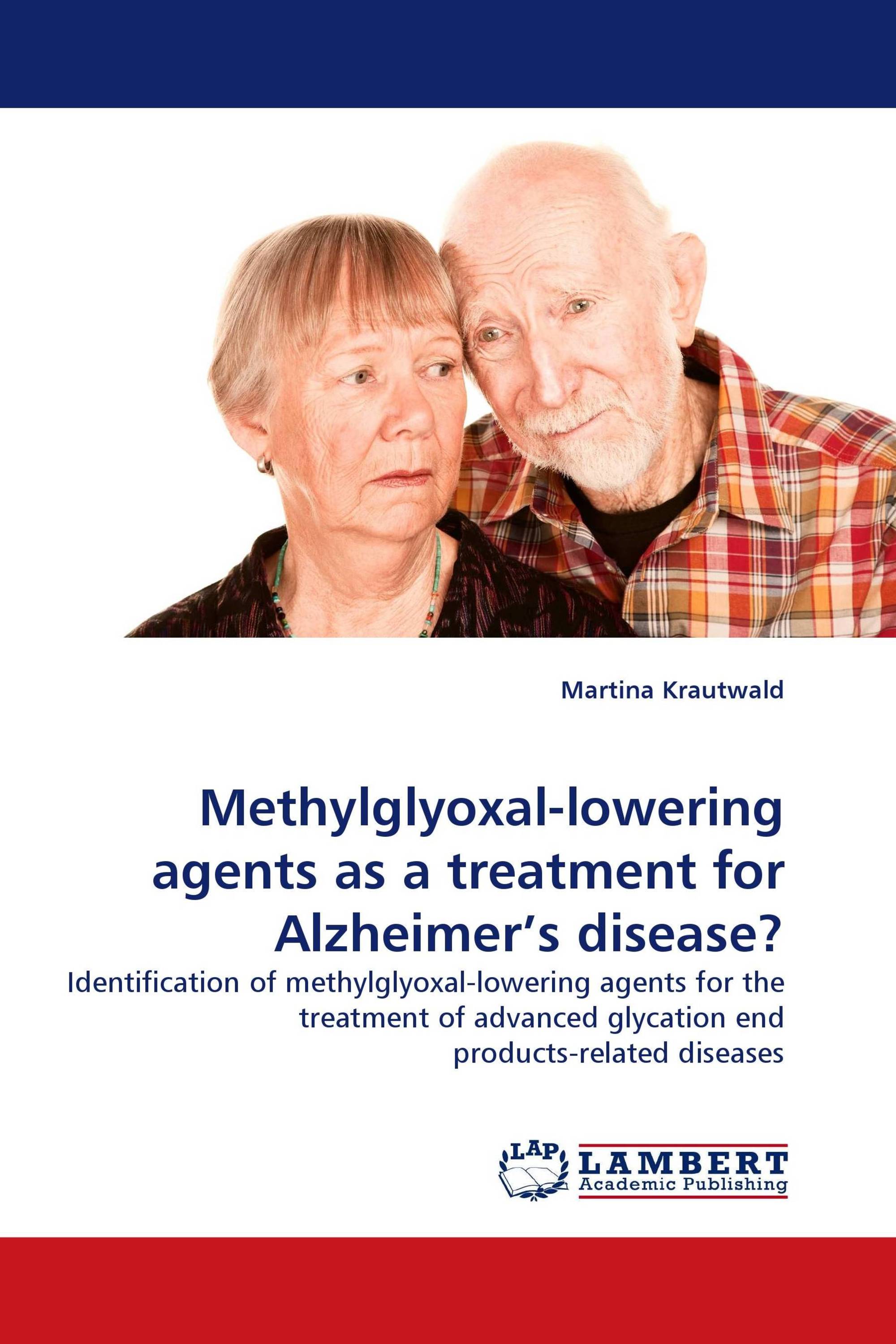Methylglyoxal-lowering agents as a treatment for Alzheimer's disease?
Identification of methylglyoxal-lowering agents for the treatment of advanced glycation end products-related diseases
LAP Lambert Academic Publishing ( 14.03.2011 )
€ 49,00
Advanced glycation end products (AGEs) play a major role in age-related diseases like Alzheimer's disease. 1,2-dicarbonyl compounds, such as glyoxal (GO) and methylglyoxal (MGO), are involved in the formation of these AGEs. Thus, it was hypothesised that the progression of Alzheimer's disease can be slowed down by lowering the concentration of 1,2-dicarbonyl compounds, which will consequently lead to a decrease in AGE formation. Therefore, the aim of this work was to establish an HPLC-method for the detection of glyoxal and methylglyoxal from cultured cells in order to determine the potential of different agents to lower the concentration of these 1,2-dicarbonyl compounds. Furthermore, it was assessed whether ALT-711 (Alagebrium), an AGE lowering agent, is an inhibitor of the enzyme thiamine diphosphokinase, due to its structural homology to the enzyme's natural substrate thiamine. This enzyme is responsible for the formation of thiamine diphosphate, the co-factor of the enzyme transketolase which is involved in the degradation of methylglyoxal. Thus, inhibition of thiamine diphosphokinase activity would counteract with ALT-711's main AGE lowering effect.
Kitap detayları: |
|
|
ISBN-13: |
978-3-8443-1618-6 |
|
ISBN-10: |
3844316183 |
|
EAN: |
9783844316186 |
|
Kitabın dili: |
English |
|
Yazar: |
Martina Krautwald |
|
Sayfa sayısı: |
84 |
|
Yayın tarihi: |
14.03.2011 |
|
Kategori: |
Eczacılık |




